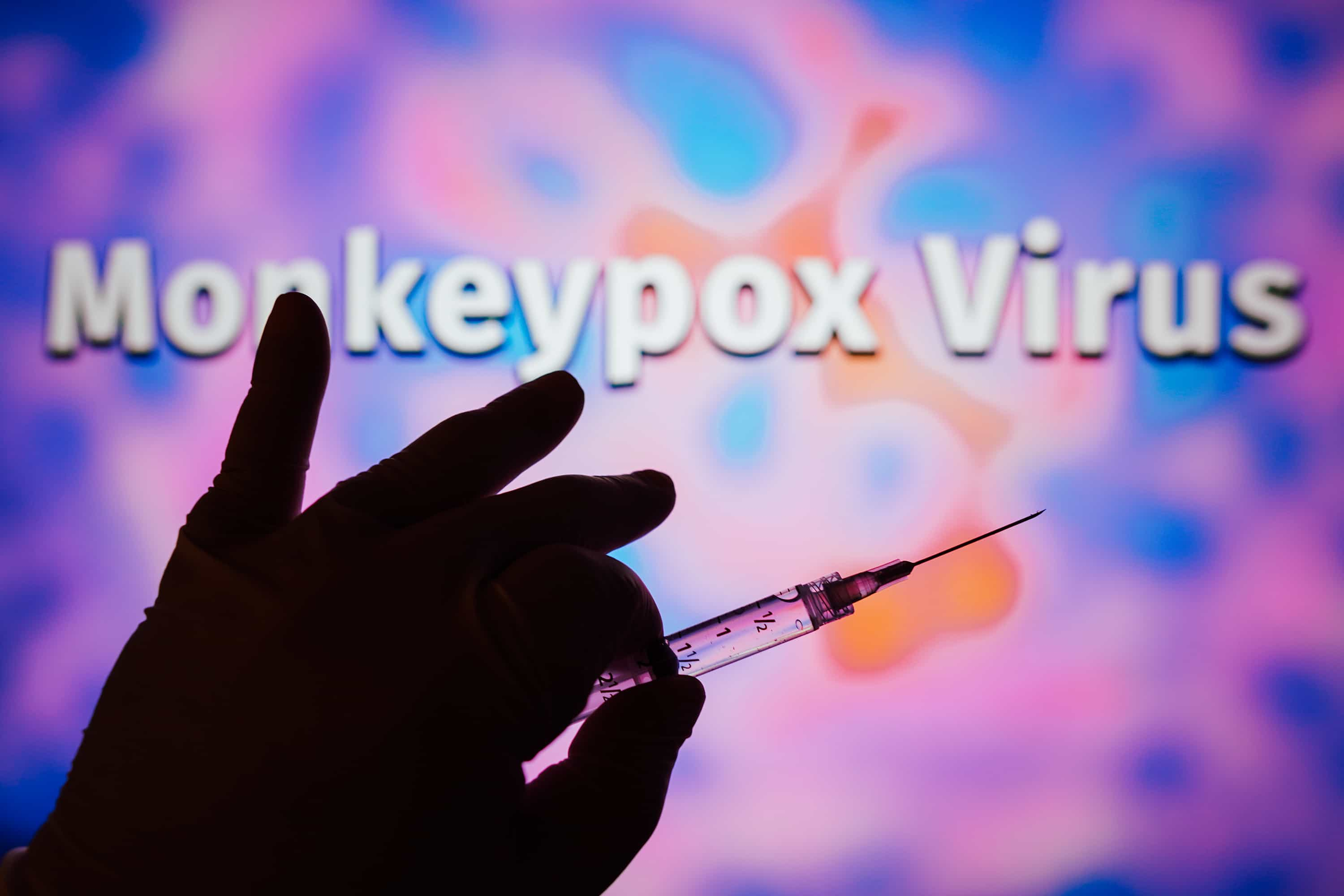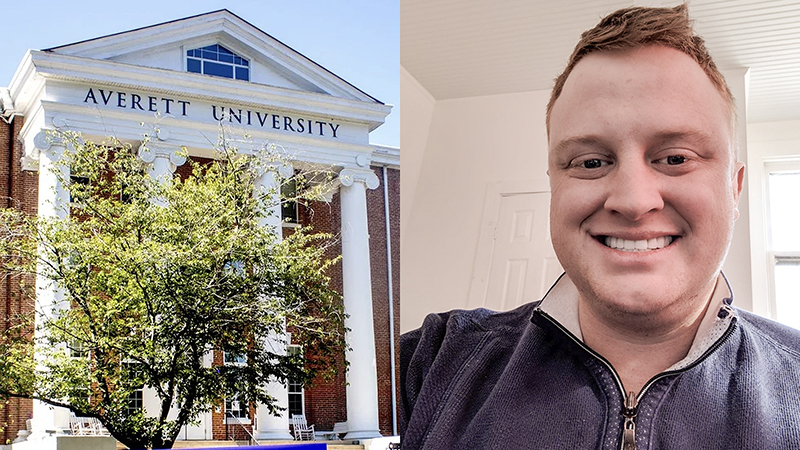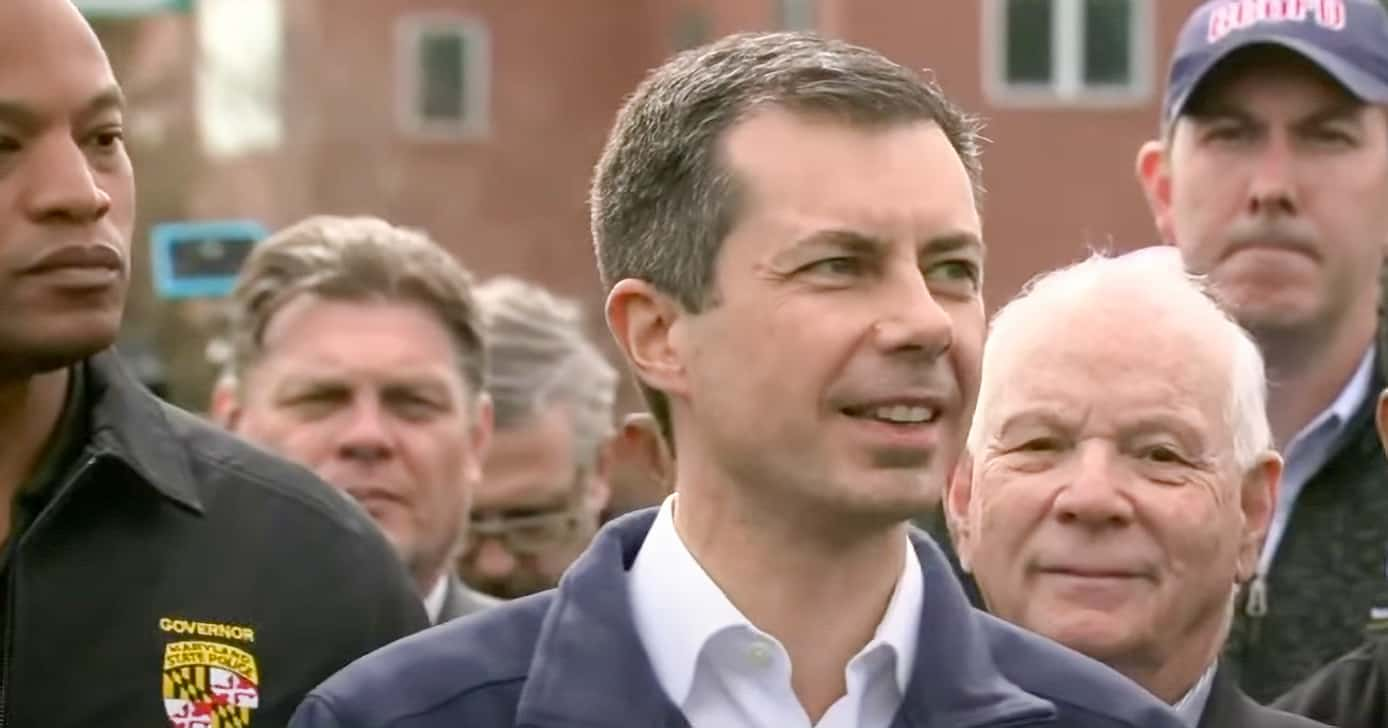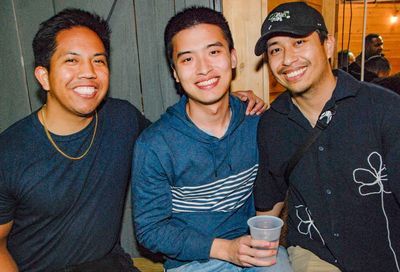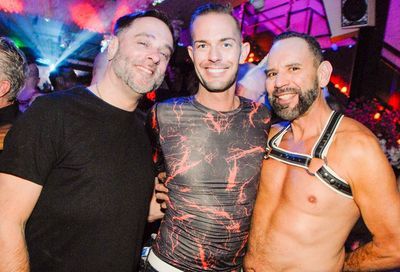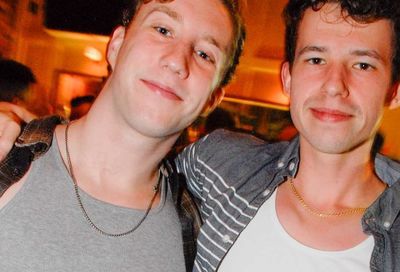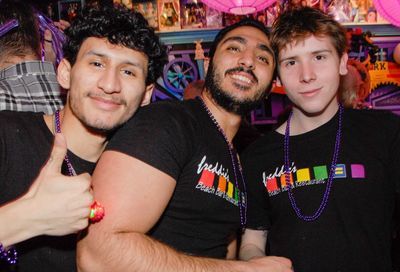Election 2018: A Complete Guide to D.C.-area LGBTQ Candidates
The DMV region has several LGBTQ candidates seeking office this November, part of a nationwide "Rainbow Wave"

Continuing a trend that’s played out for the last three years, President Trump is dominating headlines when it comes to political coverage. Staying true to form, Trump has utilized chest-puffing antics, coarse insults, and showboating at campaign rallies to overshadow most of the candidates who will actually appear on the ballot this November.
Given the actions of the Trump administration over the past few years, it’s understandable that many in the LGBTQ community feel under attack. The Jeff Sessions-led Department of Justice has urged federal courts, including the Supreme Court, to interpret civil rights laws in a way that excludes LGBTQ people from protection. President Trump has nominated — and the Republican-led Senate has confirmed without objection — several judicial nominees with significant anti-LGBTQ records. The Trump-led Department of Defense has tried to push ahead with a ban on transgender troops from serving in the military.
Most recently, Trump’s Department of Health and Human Services has sought to effectively erase transgender people from the federal government. A rumored proposal would define gender as based on biological sex at birth, which would prohibit the government from recognizing the status of people who are intersex, non-binary, or transgender.
In light of these developments, many LGBTQ people see a Democratic-run Congress — or at the very least, a Democratic House — as the only effective check on the Trump administration. The idea of a “Big Blue Wave” of Democratic victories has received much ink in the nation’s newspapers.
Due to the rosy prospects for Democrats, record numbers of liberals and progressives — including many women — are running for elected office. Part of that flood of Democratic candidates includes record numbers of LGBTQ candidates, setting up the possibility of what some have referred to as a “rainbow wave” should they emerge victorious on Nov. 6.
“Never before in our 27-year history have we seen so many viable and qualified LGBTQ leaders standing up to run for office,” Annise Parker, the former mayor of Houston and the president and CEO of the LGBTQ Victory Fund, said in a statement. “While the Rainbow Wave of LGBTQ candidates is impressive in numbers, we are also running for more high-level offices than ever before and for positions where no openly LGBTQ person has served.”
Among LGBTQ candidates making headlines this cycle are four gubernatorial candidates: incumbent Oregon Gov. Kate Brown, who is bisexual; openly gay U.S. Rep. Jared Polis in Colorado; out lesbian Lupe Valdez, the former sheriff of Dallas County seeking the governor’s mansion in Texas; and out transgender candidate Christine Hallquist in Vermont. Meanwhile, 30 LGBTQ people are seeking seats in Congress, including two who are running for the U.S. Senate: incumbent Sen. Tammy Baldwin of Wisconsin, and U.S. Rep. Kyrsten Sinema, running in Arizona.
While much of the focus in this year’s midterms is on Congress, there are at least 213 LGBTQ individuals running for statewide or state legislative seats, and 143 running for local offices like city councils or school boards. In the D.C. area, at least 17 openly gay candidates are seeking office, while a number of LGBTQ-friendly candidates are also running for various offices.
Ahead of the midterms, we’ve rounded up every candidate and race that any LGBTQ or allied voter in the DMV region should be aware of. Let’s jump in.

DISTRICT OF COLUMBIA
In the District, Mayor Muriel Bowser (D), a longtime supporter of the LGBTQ community, is favored to win re-election. She is being challenged by openly gay Libertarian candidate Martin Moulton, who is hoping to corral most of the anti-Bowser vote — particularly voters who aren’t affiliated with a major party. Also running are Dustin “DC” Canter, an independent progressive, and Ann Wilcox, the Statehood-Green Party nominee.
Democrat Eleanor Holmes Norton, the District’s non-voting delegate in Congress, is seeking re-election and is favored to win in the heavily Democratic-leaning District. Challenging her are openly gay Libertarian Bruce Majors, a candidate for mayor in 2014, Republican Nelson Rimensnyder, Statehood-Green candidate Natale “Lino” Stracuzzi, and Independent John Cheeks.
Council Chairman Phil Mendelson (D) initially looked to be running unopposed for re-election, but has drawn openly gay Libertarian candidate Ethan Bishop-Henchman as an opponent. Bishop-Henchman’s husband, Joe Henchman, is also running for office this year, challenging incumbent D.C. Attorney General Karl Racine (D).
Restaurateur and community organizer Dionne Bussey-Reeder, running as an independent, is seeking one of two at-large seats on the D.C. Council. District law requires that one of the at-large seats goes to a non-Democrat, meaning Bussey-Reeder, who has the backing of Mayor Bowser, will essentially be pitted against incumbent Elissa Silverman, a member of the Council’s progressive wing. While there is no rule that prohibits people from voting for both Bussey-Reeder and Silverman, the District’s partisan leanings all but assure incumbent Anita Bonds (D) the first of the two seats. Also running are independent Rustin Lewis, Republican Ralph Chittams, Sr., and Statehood Green Party candidate David Schwartzman.
In Ward 1, incumbent Councilmember and LGBTQ ally Brianne Nadeau (D) faces a spirited challenge from Jamie Sycamore, an openly gay sign language interpreter who is running as an independent.
In Ward 3, incumbent Councilmember Mary Cheh (D), an LGBTQ ally, is being challenged by independent Petar Dimtchev. In Ward 5, incumbent Councilmember Kenyan McDuffie (D), another LGBTQ ally, faces Statehood Green Party candidate and ANC candidate Joyce “Chestnut” Robinson-Paul, and independent challengers Amone Banks and Kathy Henderson, an ANC commissioner and activist from the city’s Trinidad neighborhood.

In the sprawling Ward 6, which covers Navy Yard, the Southwest Waterfront, Capitol Hill, and parts of the Shaw/U Street “gayborhood,” incumbent Councilmember Charles Allen (D) faces a challenge from Michael Bekesha, a pro-LGBTQ candidate who has sought to distance himself from the GOP’s stances on social issues by marketing himself as an “urban Republican,” one focused more on problem-solving and constituent services than ideological battles.
A number of out LGBTQ candidates — at least 40 — are seeking positions as ANC commissioners, nonpartisan elected officials who deal with zoning, parking, permitting, and other neighborhood or development-related issues, this cycle.
Jason Andrean, a bank manager and community advocate who is openly gay, is seeking the Ward 1 seat on the D.C. State Board of Education. He is running against Emily Gasoi, a former classroom teacher, author, and founder of the Mission Hill School in Boston, and Callie Kozlak, a former D.C. public school teacher and current campaign manager for education policy at Unidos US, a Latino advocacy organization.
In Ward 4, where a special election has been called for Dec. 4 instead of Nov. 6 (due to the incumbent board member’s failure to submit her resignation by a certain deadline), Ryan Tauriainen, the director of early childhood education at a charter school, is seeking a seat against Elani Lawrence, Frazier O’Leary, and Rhonda Henderson, the preferred choice of Ward 4 Councilmember Brandon Todd.

MARYLAND
Most of Maryland’s state and local offices serve four-year terms, with every office up for re-election in midterm years. As such, Maryland LGBTQ voters will find their ballots chock full of different races.
On the federal level, two-term U.S. Sen. Ben Cardin (D) is expected to cruise to re-election against Republican Tony Campbell, a former Army chaplain and Towson University lecturer. Given the highly gerrymandered nature of the state’s 8 congressional districts, no seats are expected to change hands between the Republican and Democratic parties.
In the governor’s race, incumbent Larry Hogan (R) is favored for re-election over Democrat Ben Jealous, the former president of the NAACP. Jealous shocked the political world in June by emerging from a crowded nine-candidate field to upset establishment Democrats’ preferred candidate by a 10-point margin. He hopes to replicate that feat by getting dispirited and apathetic Democratic voters to turn out in higher numbers.
For LGBTQ voters, Hogan is tolerable — or friendly, depending on your political leanings. He has signed some pro-LGBTQ pieces of legislation into law, including a ban on conversion therapy, and allowed others, such as bills providing insurance parity for same-sex couples undergoing infertility treatments, or allowing transgender people to obtain new birth certificates reflecting their correct gender, to go into effect without his signature. However, some liberal-leaning LGBTQ advocates point out that four years ago, Hogan opposed a bill that expanded nondiscrimination protections to members of the transgender community.
While Jealous is largely unknown to most voters, he has earned praise for backing pro-LGBTQ initiatives and supporting efforts to legalize same-sex marriage during his time heading the NAACP.

Most of Maryland’s LGBTQ candidates are seeking seats in the General Assembly or at the county level. In the House of Delegates, incumbents Anne Kaiser (D-Montgomery Co.), Bonnie Cullison (D-Montgomery Co.), Luke Clippinger (D-Baltimore City) and Maggie McIntosh (D-Baltimore City) are up for re-election. Gabriel Acevero, who is seeking to become the first openly gay Afro-Latino elected to the lower chamber, will compete for one of three seats representing District 39 in Upper Montgomery County.
Del. Mary Washington (D-Baltimore City), who ousted an incumbent Democrat in the primary, is seeking a promotion to the State Senate. Because she faces no major-party opposition, she’ll become the chamber’s sole LGBTQ member following the November elections, due to Sen. Rich Madaleno’s (D-Montgomery Co.) decision to run for governor instead of pursuing re-election.
Three other LGBTQ candidates are seeking election this fall. In Howard County, Byron MacFarlane is running for Register of Wills. In Frederick, Liz Barrett is seeking a seat on the county school board. And in Montgomery County, Evan Glass is seeking an at-large seat on the County Council.

VIRGINIA
Because most of Virginia’s state and local races are held in odd-numbered years, the bulk of LGBTQ voters’ attention is rightly focused at the federal level. This year, incumbent Sen. Tim Kaine (D), Hillary Clinton’s vice presidential pick, is running for re-election against Corey Stewart, the anti-LGBTQ Chairman of the Prince William County Board of Supervisors.
Stewart is best known for his inflammatory statements, his opposition to illegal immigration, and his embrace of President Trump. He has also garnered press attention for his support and defense of the Confederate battle flag (despite being a native Minnesotan), as well as emblems and statues erected in honor of Confederate soldiers.
In June, Stewart was endorsed by Public Advocate of the United States, a conservative interest group run by former Loudoun County Commissioner Eugene Delgaudio (R-Sterling). Stewart was endorsed after indicating his opposition to allowing transgender people to use restrooms matching their identity, expressing support for lawsuits to overturn the Supreme Court’s decision legalizing marriage equality, and his support for laws granting religious exemptions to business owners who wish to discriminate against LGBTQ people.

In the race for the U.S. House, the most high-profile contest is occurring in the Loudoun County-based 10th Congressional District, which stretches from parts of McLean and Manassas to the Shenandoah Valley. There, State Sen. Jennifer Wexton (D-Sterling), the lead sponsor of a bill to prevent anti-LGBTQ discrimination in housing, is challenging incumbent U.S. Rep. Barbara Comstock, whose record on LGBTQ rights is mixed. Democrats must flip Comstock’s district if they are to have any chance of gaining control of Congress.
Another race to watch this cycle is the 2nd Congressional District, where U.S. Rep. Scott Taylor (R), the sponsor of a housing nondiscrimination bill, faces off against former Naval officer Elaine Luria. In Virginia’s 5th Congressional District, investigative journalist Leslie Cockburn (D) faces distiller Denver Riggleman (R) for an open seat. In Virginia’s 7th Congressional District, former CIA officer Abigail Spanberger, a Democrat, is challenging Dave Brat (R), a former college professor and Tea Party activist best known for his primary defeat of former House Majority Leader Eric Cantor. National Democrats see all three as possible pickup opportunities in their quest for control of Congress.
Election day is Tuesday, Nov. 6. Be sure to get out and vote!
Support Metro Weekly’s Journalism
These are challenging times for news organizations. And yet it’s crucial we stay active and provide vital resources and information to both our local readers and the world. So won’t you please take a moment and consider supporting Metro Weekly with a membership? For as little as $5 a month, you can help ensure Metro Weekly magazine and MetroWeekly.com remain free, viable resources as we provide the best, most diverse, culturally-resonant LGBTQ coverage in both the D.C. region and around the world. Memberships come with exclusive perks and discounts, your own personal digital delivery of each week’s magazine (and an archive), access to our Member's Lounge when it launches this fall, and exclusive members-only items like Metro Weekly Membership Mugs and Tote Bags! Check out all our membership levels here and please join us today!




